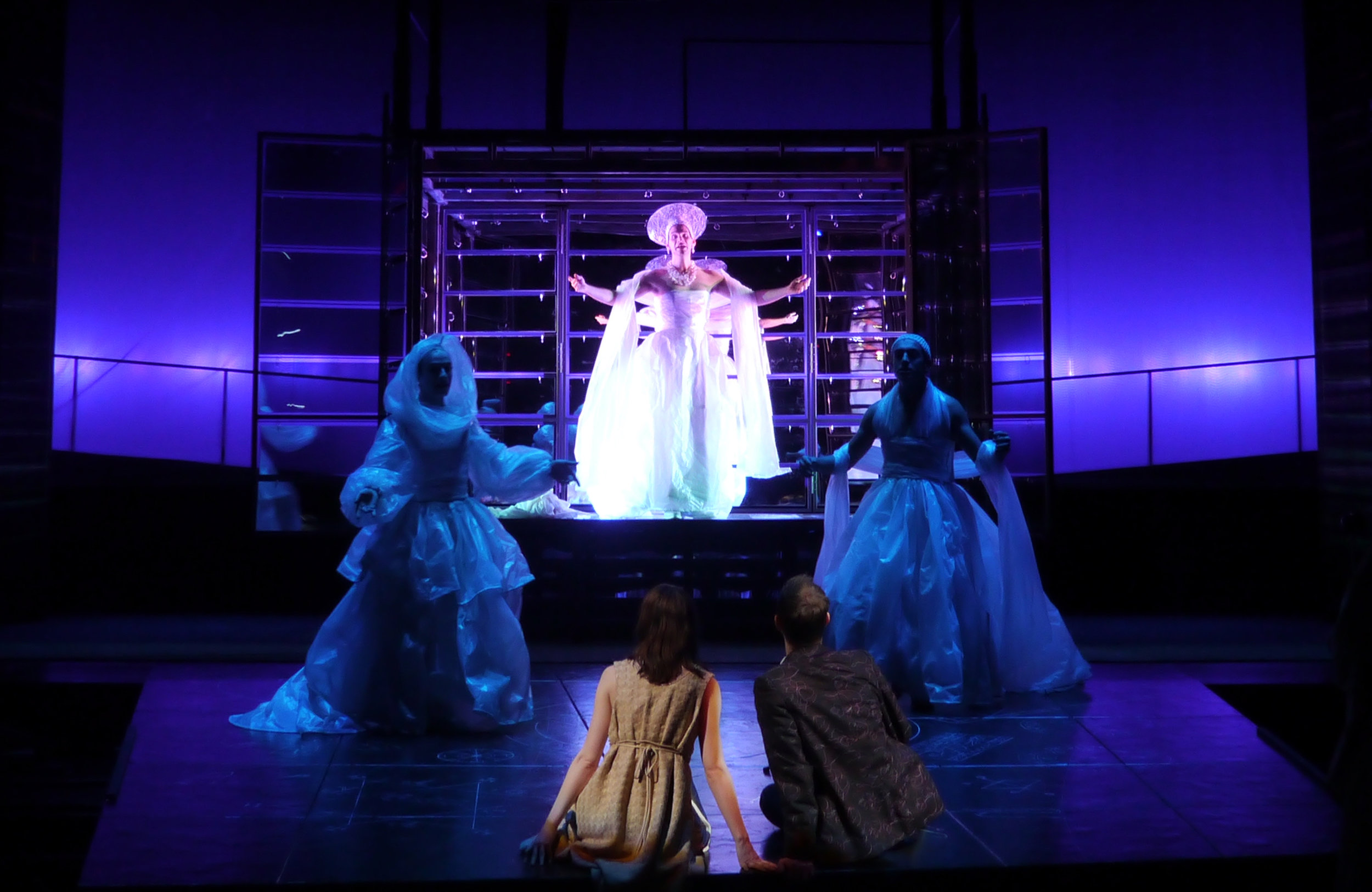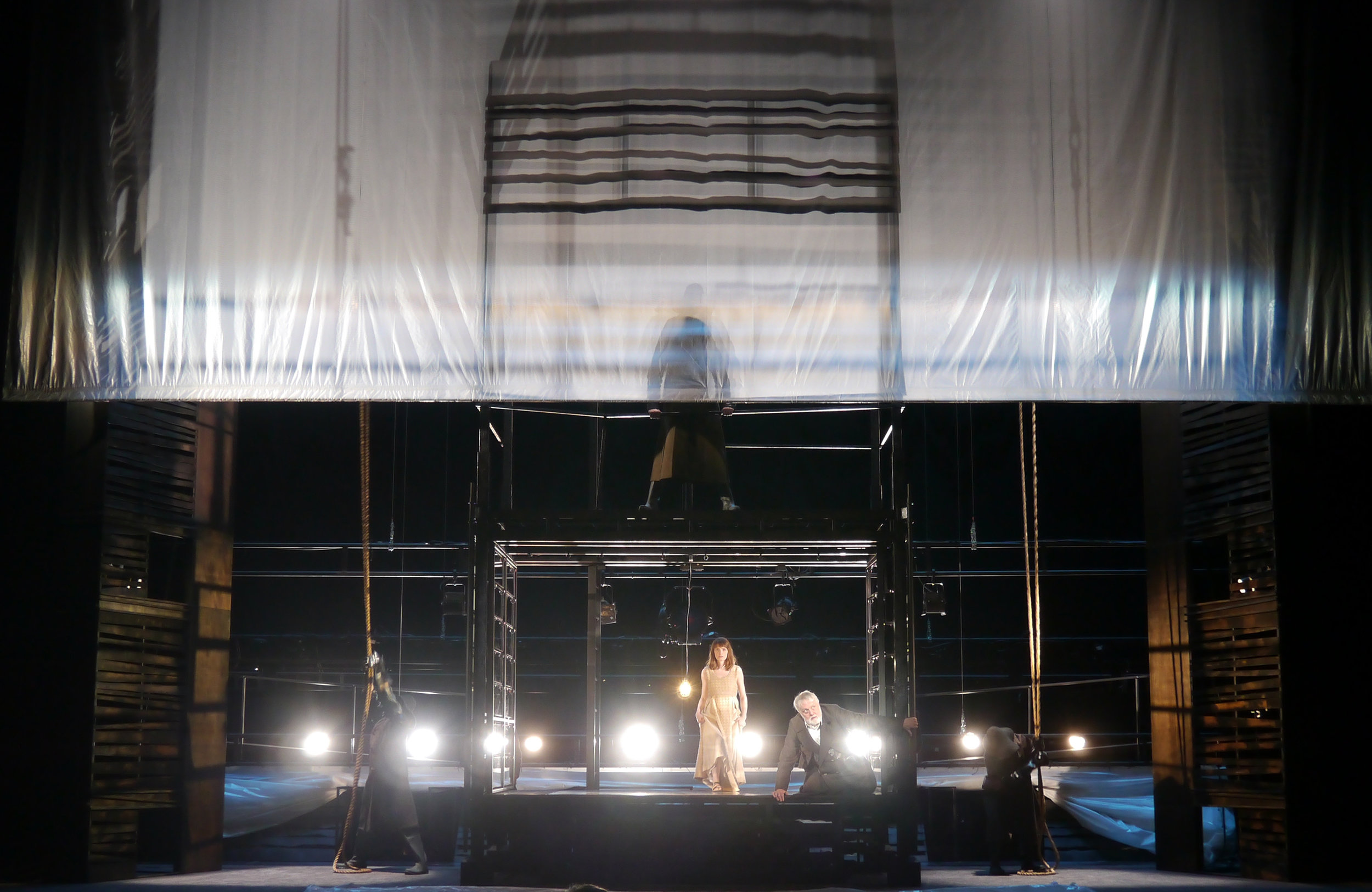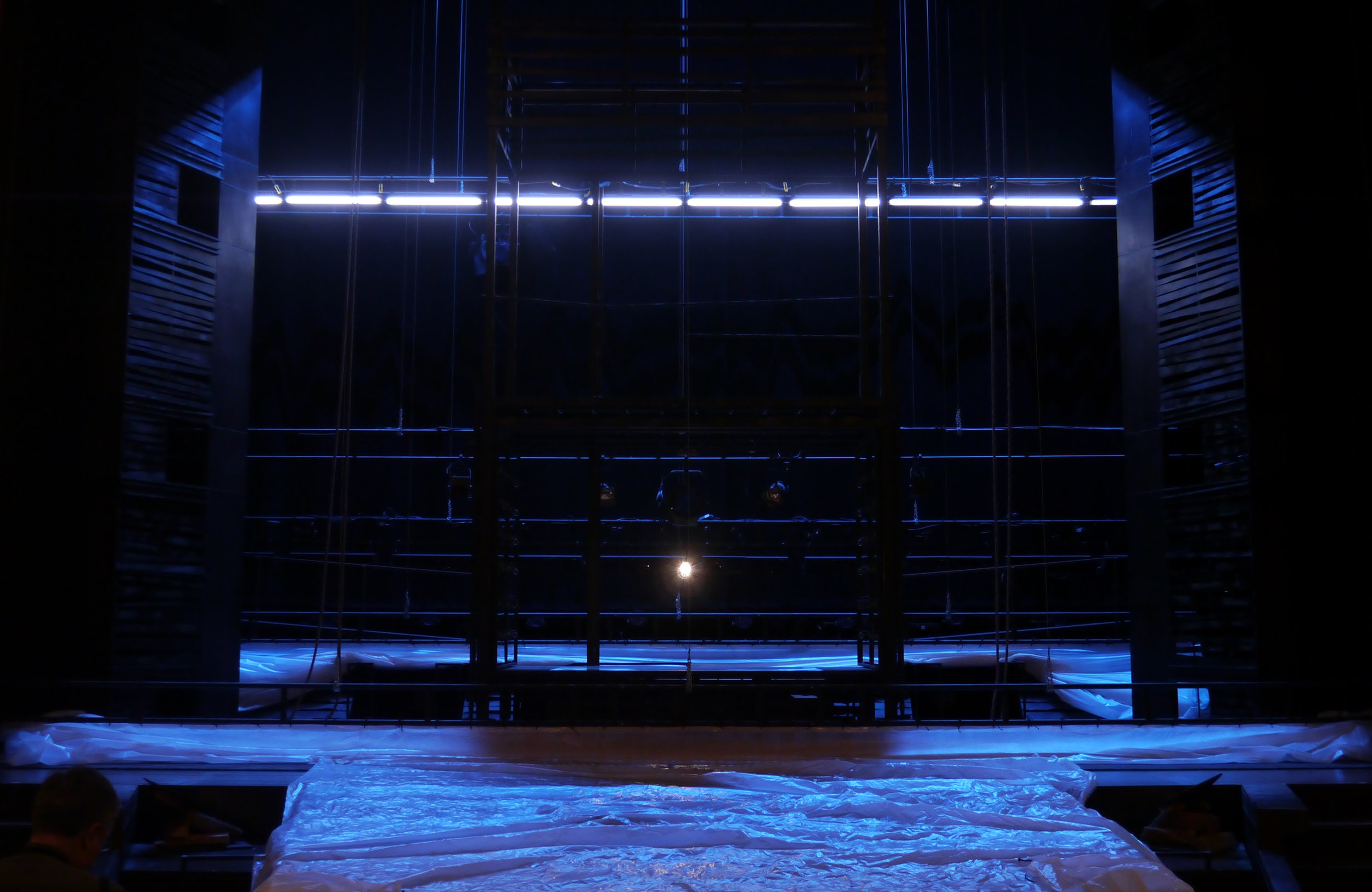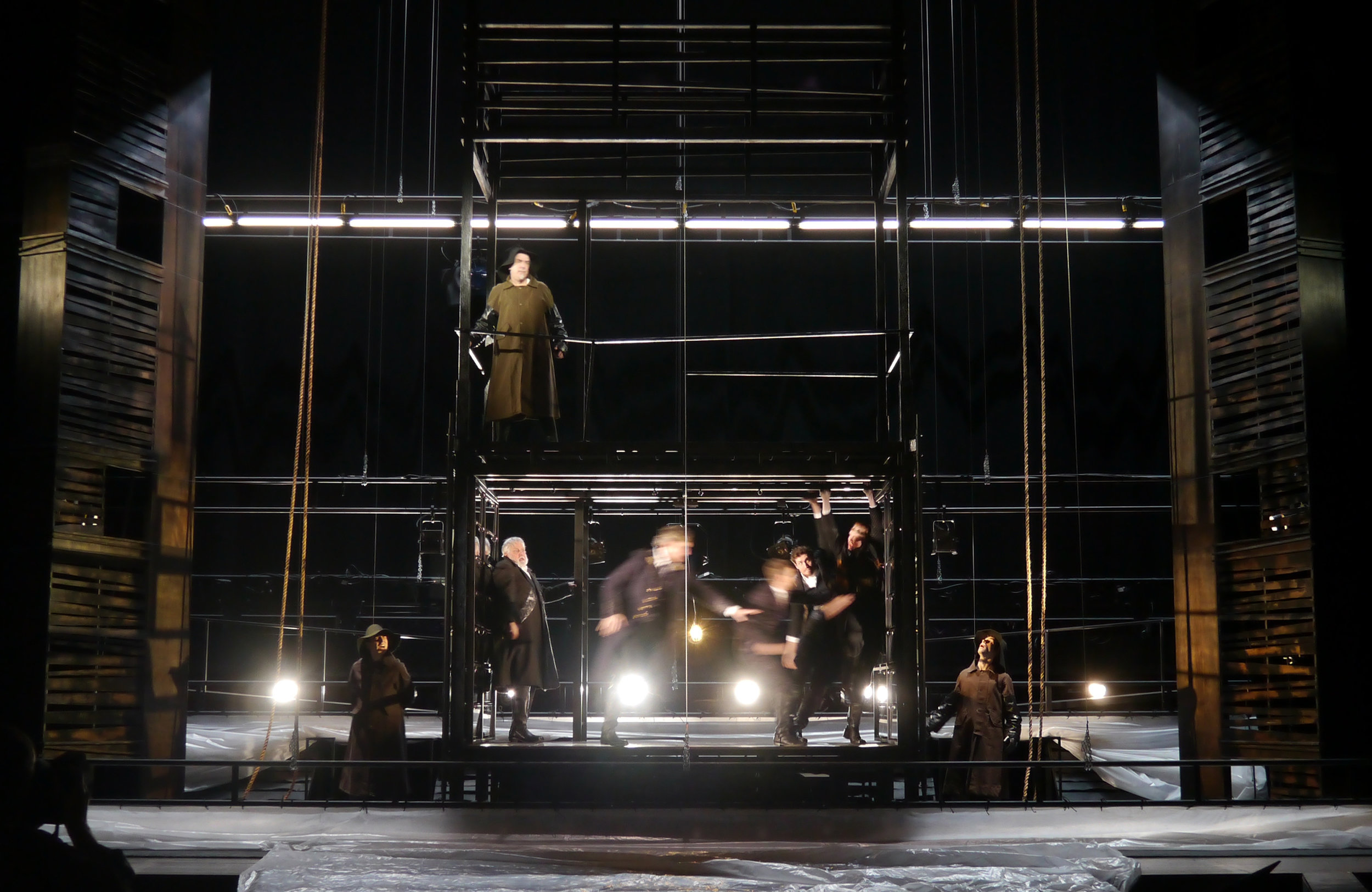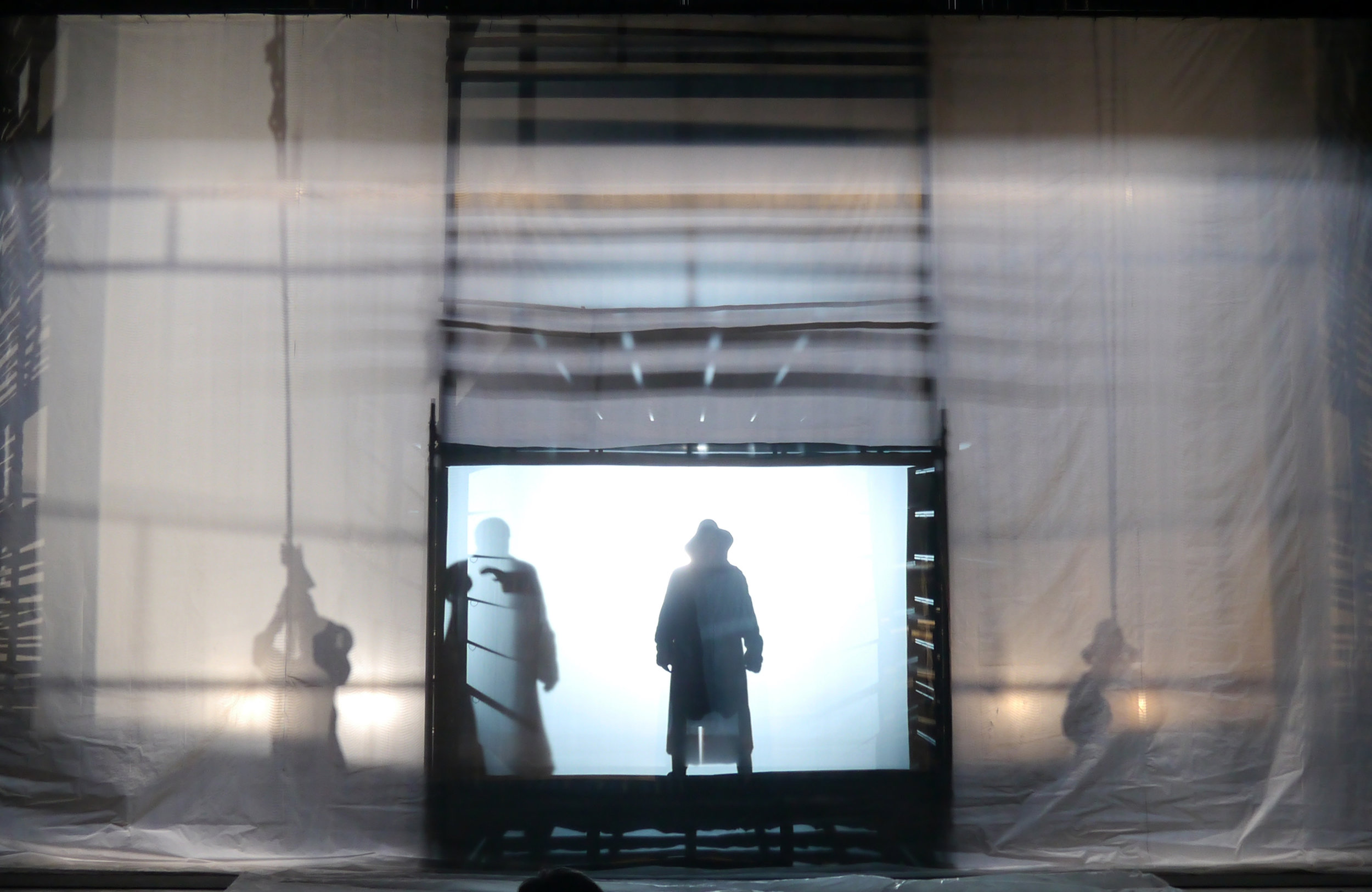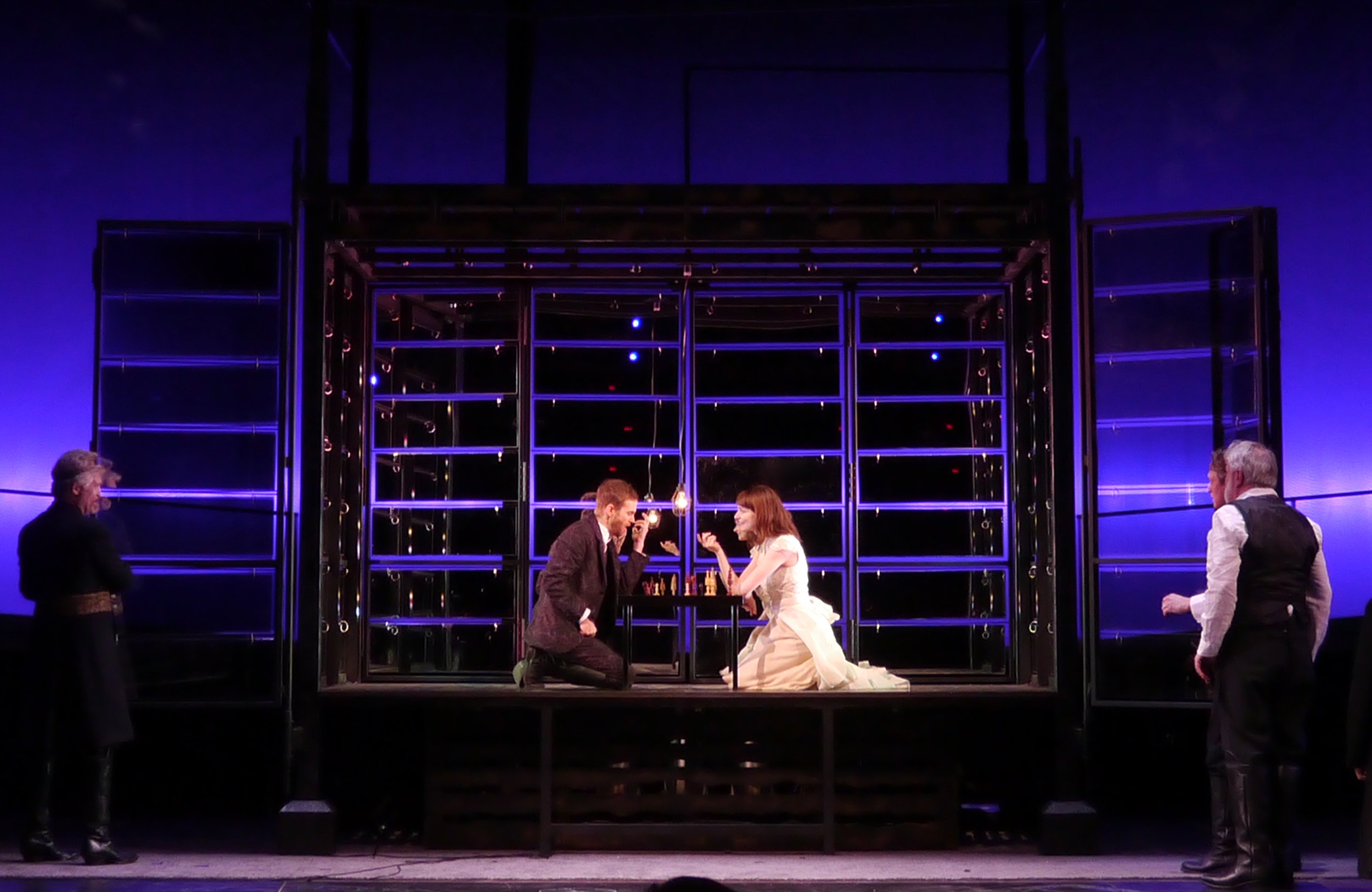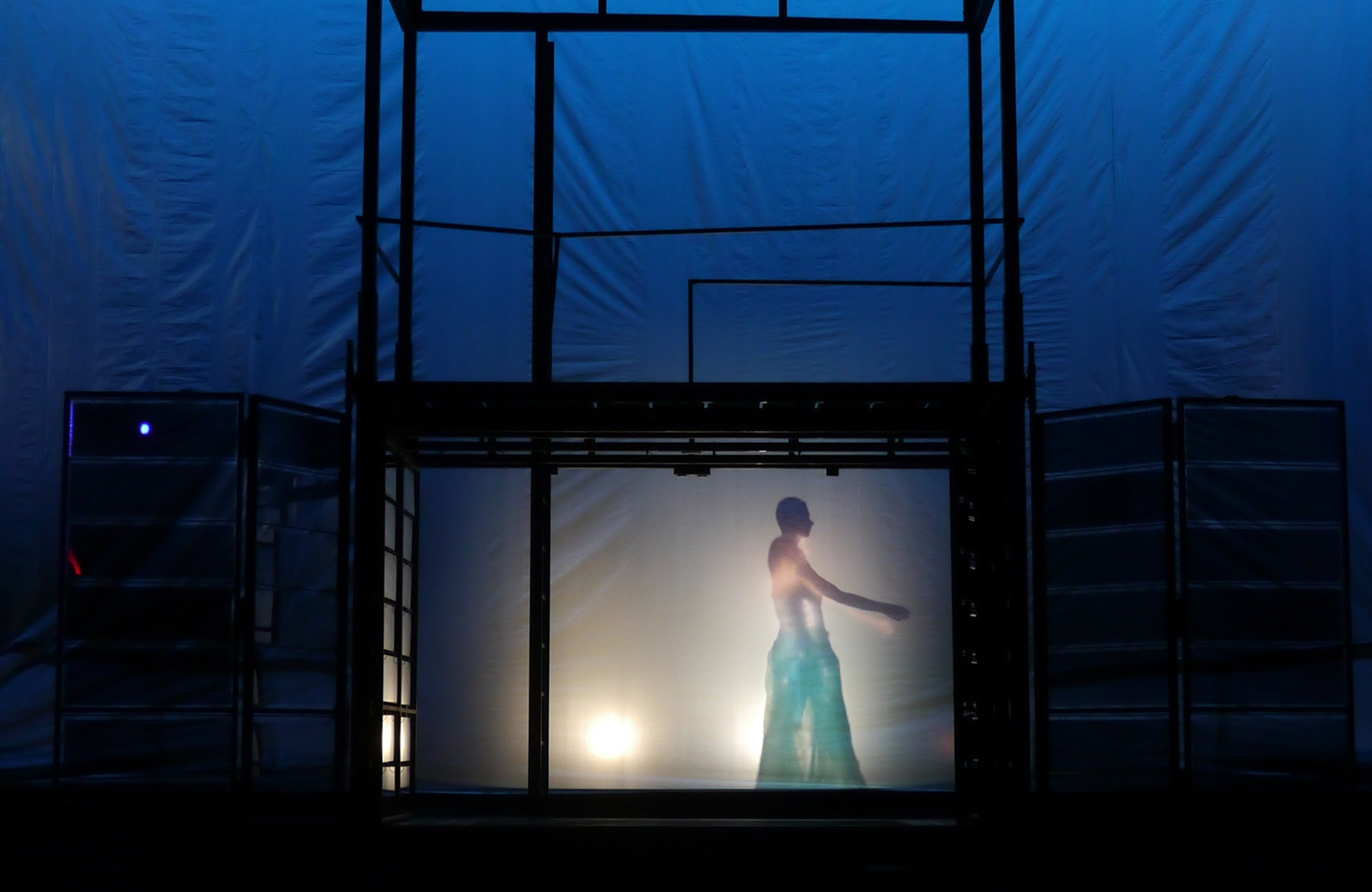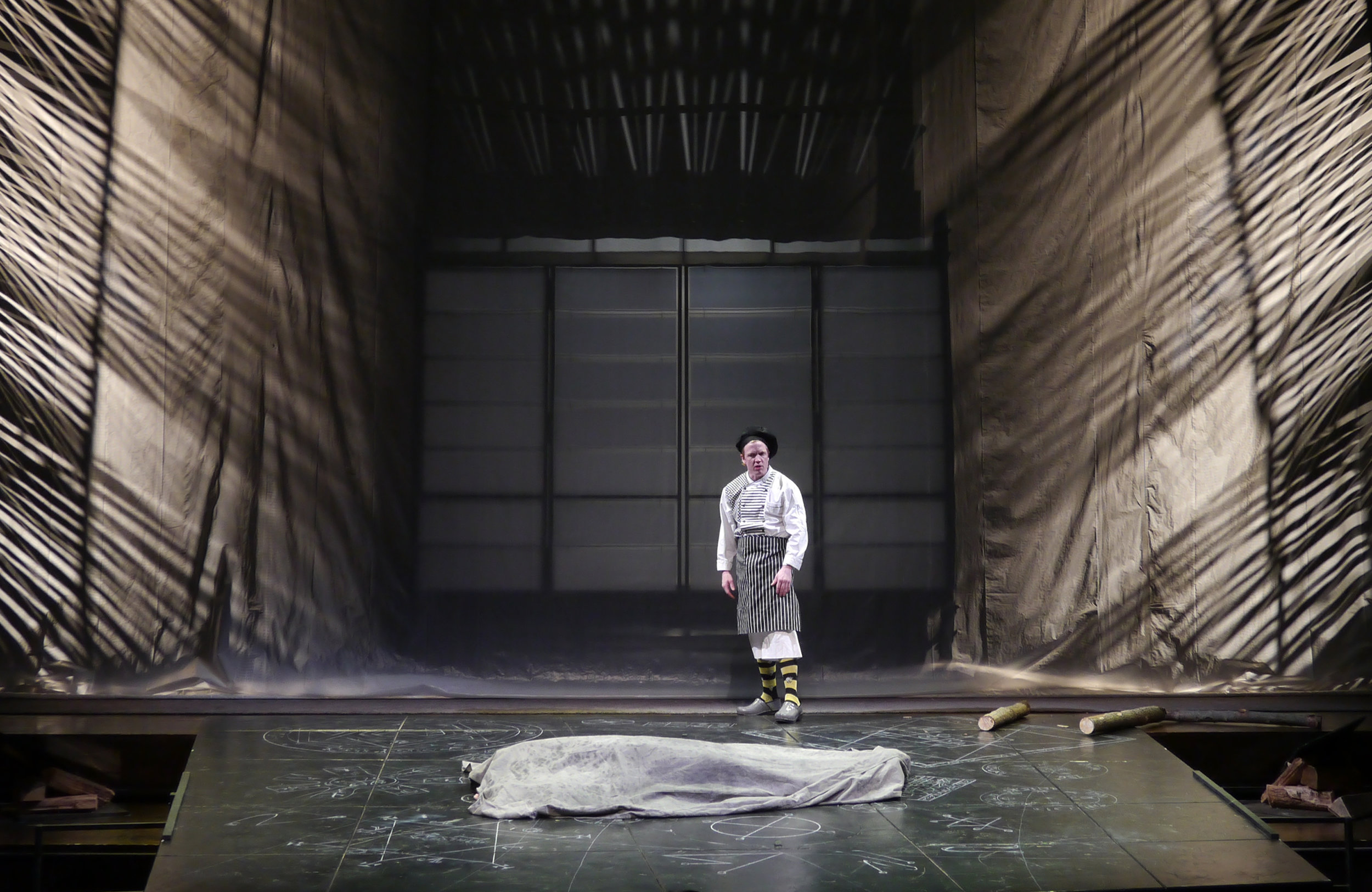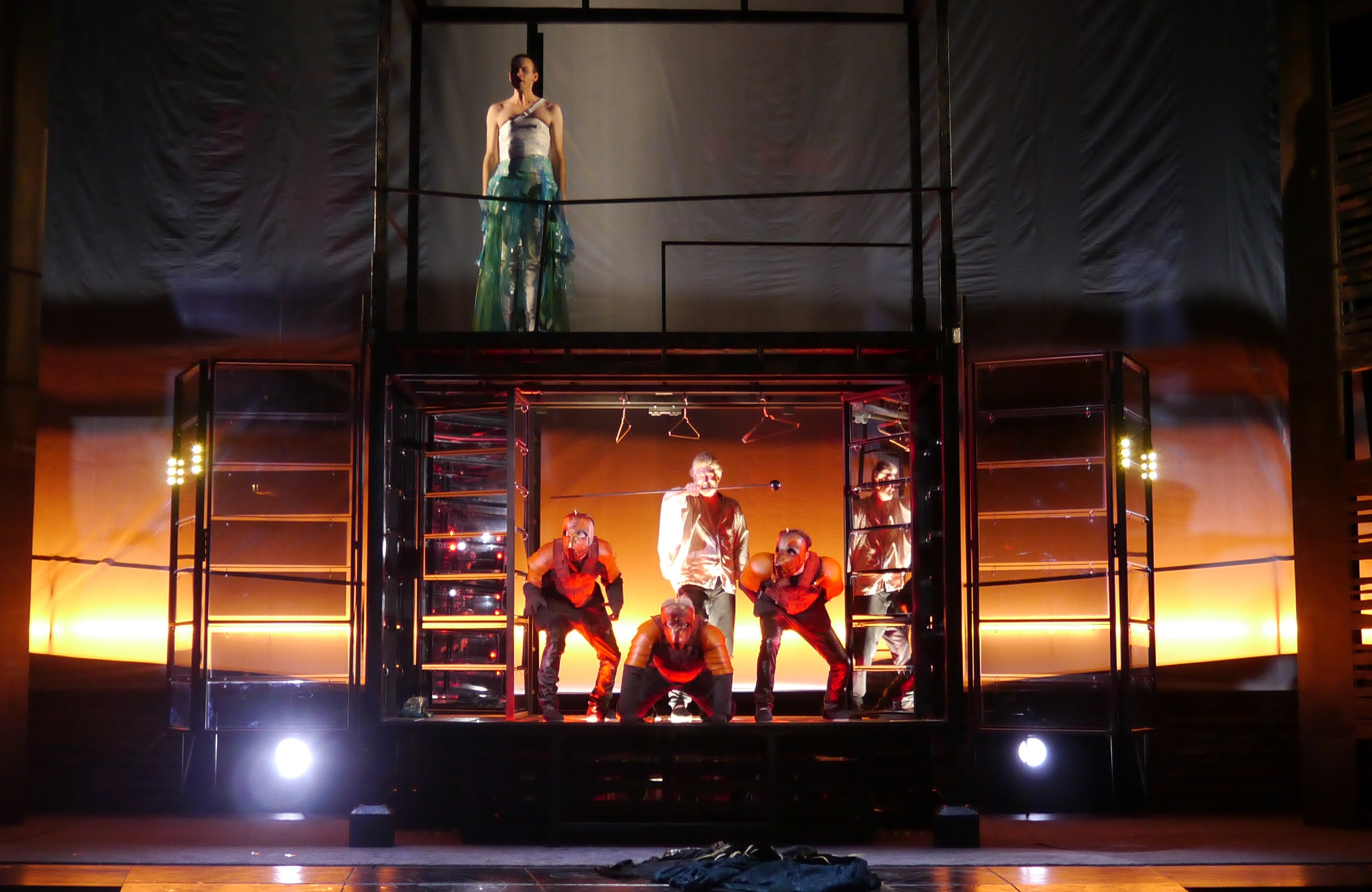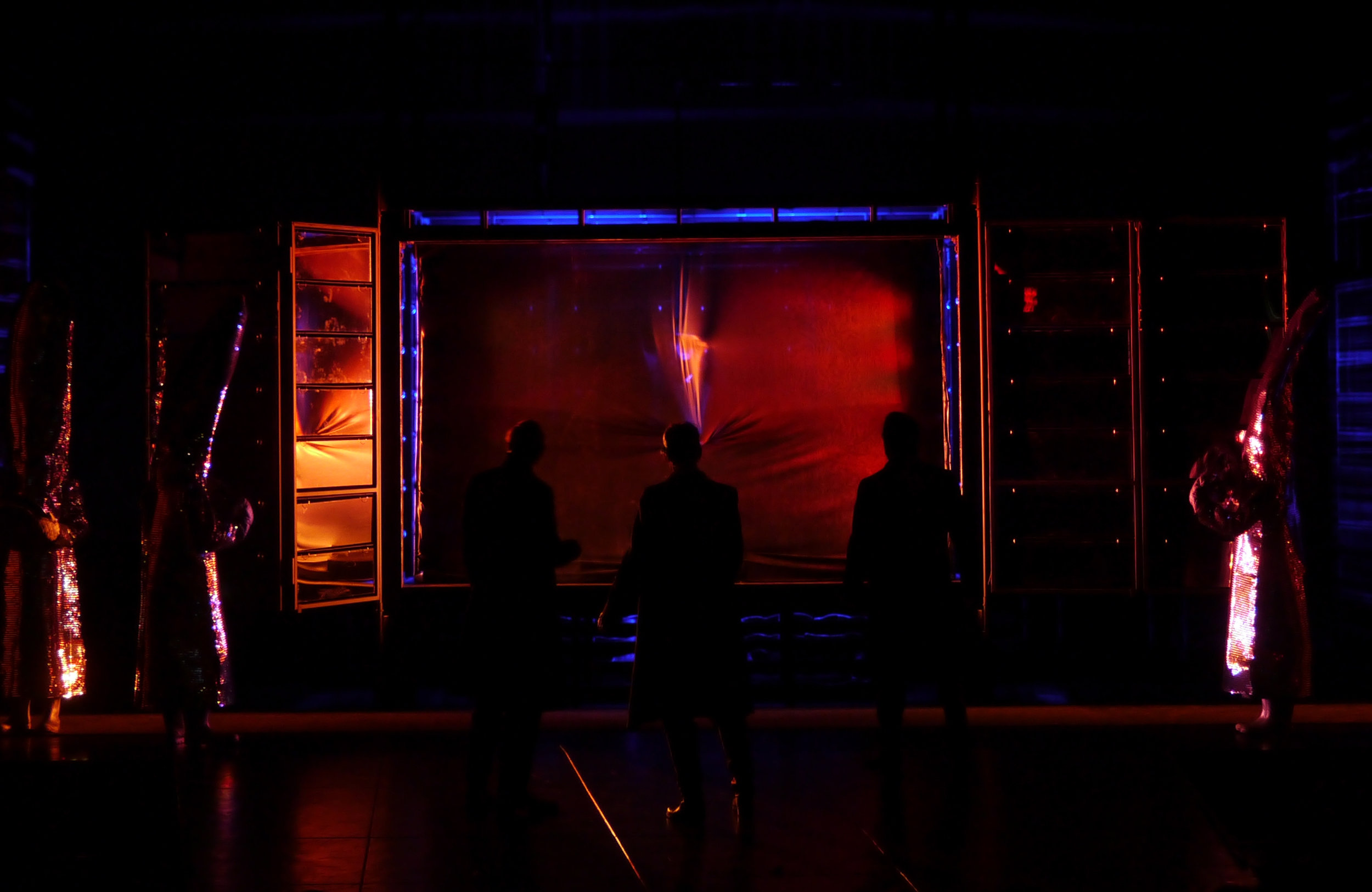THE TEMPEST
Set Design: Russell Metheny | Lighting Design: Rick Martin
Costume Design: Kim Krumm Sorenson | Sound Design: Matt Tierney
Scroll down to read Drew's director's note for The Tempest at Great Lakes Theater.
The Tempest by William Shakespeare | Director's Note
From as far back as Aristotle to the forefront of modern neuroscience, we have linked our fundamental conception of humanity to the notion of consciousness--the spark of awareness that makes us us. Consciousness fuels our innate curiosity about the world, as well as provides the window through which we perceive that world. It establishes both the ‘I’ and the ‘eye’ of the beholder. In The Tempest’s spare and tantalizing allusiveness, Shakespeare delves deeper into the thrilling mystery of life than in any of his earlier plays. Written at a time when new learning was remapping the frontiers of human knowledge, The Tempest explores a paradox of human consciousness: awareness of one’s self in the world can prevent one from feeling connected to the world.
Albert Einstein once wrote:
A human being is a part of the whole, called by us ‘Universe,’ a part limited in time and space. He experiences himself, his thoughts and feelings as something separated from the rest -- a kind of optical delusion of his consciousness. This delusion is a kind of prison for us, restricting us to our personal desires and to affection for a few persons nearest to us.
Prospero, who has devoted his life to knowing all there is to know about the universe, must confront the extent to which he does not know himself and can never fully know others. In recognizing the limits of his comprehensive power, Prospero learns how to broaden the scope of his empathic ability and prepares for a journey that will enable him to rectify the misdeeds of his selfish past. Yet, as its title implies, The Tempest is ultimately concerned with much more than one man’s evolution.
Shakespeare, whom Ben Jonson called ‘the Soul of the age’ -- an age that considered the soul to be the seat of both thought and feeling -- at once celebrates the awesome curiosity and capacity of the human mind and exposes the fears, anxieties and self-serving impulses that threaten to overwhelm it. That which makes us human, as Shakespeare shows us time and time again, is our struggle to reconcile the enormity of our dreams with the exquisite vulnerability of our brief lives.
The characters in The Tempest confront physical and emotional landscapes that force them to question fundamental truths about who they think themselves to be. Fatigued and isolated, having been traumatically ripped from their everyday world, Prospero’s prisoners stumble through dizzying states of consciousness, uncertain whether they can trust what they see, hear or feel. Haunted by memories of their past and tempted by visions of an imagined future, the people of The Tempest struggle to comprehend the insistent present at work in Prospero’s plan.
The island, with its mysterious sights and sounds, becomes a physical manifestation of the human mind -- a lens that both reveals and obscures. In Shakespeare’s day, magicians gazed for hours by candlelight into obsidian mirrors. This occult art, called ‘scrying,’ transported its practitioners into the supernatural realm. The terra incognita of Shakespeare’s Tempest facilitates a similar magic, bestowing upon its audience the power to participate in both sides of the act of knowing. Our need to understand leads us to identify with both the ruler and the subject; we are both the observer and the observed.
As he reveals the extent to which human beings are enslaved by their senses, Shakespeare offers glimpses of the transformative power of perception: how the unknown can be turned into monster or god and how brief moments contain lifetimes of experience. We wonder at what it is to wonder and marvel at our capacity for the marvelous. We appreciate, in the midst of our tempestuous lives, how rare and precious are those moments when we can truly see, can truly touch, can truly feel the humanity of those around us.
There’s something resonantly modern in Shakespeare’s exploration of human consciousness. Writing thirty years before Rene Descartes shook the philosophical world with his foundational assertion, “I think therefore I am,” and three hundred years before Albert Einstein formulated his theories of relativity, Shakespeare dramatized the power of the mind both to imprison and to liberate. Like his contemporary, John Donne, Shakespeare reminds us that “No man is an island;” The Tempest dares us to open our hearts and minds fully enough to drown with all the world in the deluge of our senses.
-Drew Barr
